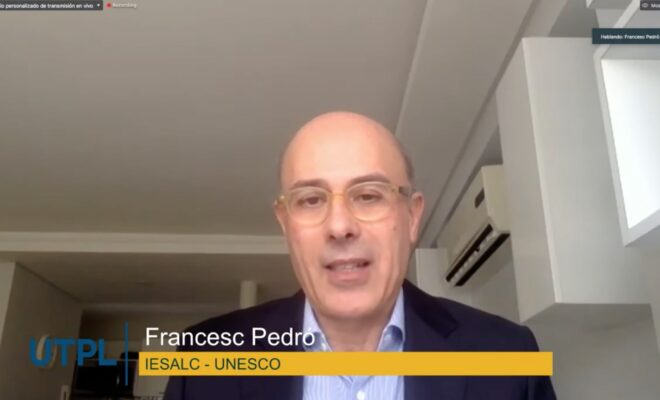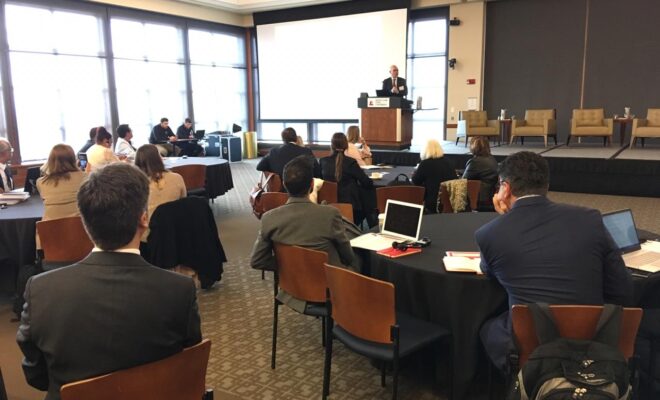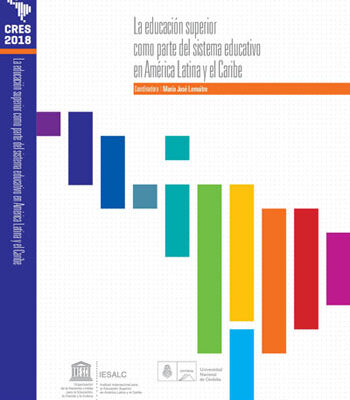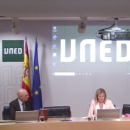Webinar: Impact of the Coronavirus Pandemic on the Quality of Distance and Online Learning in Higher Education

 The Instituto Latinoamericano y del Caribe de Calidad en Educación Superior a Distancia (Latin American and Caribbean Institute for Quality in Higher Distance Education) (CALED) hosts the series of webinars “Quality and Evaluation of Distance and online learning in higher education”, in the context of the Coronavirus Pandemic.
The Instituto Latinoamericano y del Caribe de Calidad en Educación Superior a Distancia (Latin American and Caribbean Institute for Quality in Higher Distance Education) (CALED) hosts the series of webinars “Quality and Evaluation of Distance and online learning in higher education”, in the context of the Coronavirus Pandemic.
The director of UNESCO International Institute for Higher Education in Latin America and the Caribbean (IESALC), Francesc Pedró, together with the deputy director of CALED, María José Rubio, will participate in the “Webinar: Impact of the CORONAVIRUS pandemic on the quality of distance and online learning in higher education”, which will be held on Thursday, May 7, 2020, at 11:00 a.m. Ecuador time.
Webinar: Impact of the Coronavirus Pandemic on the Quality of Distance and Online Learning in Higher Education
In the series of webinars on the quality and evaluation of online and distance higher education in the context of the coronavirus pandemic, the director of IESALC, Francesc Pedró, spoke about how the distance and online education modality has stopped being something remote and foreign, to become the main vehicle for higher education. The world population affected by the change in the methodology to attend classes is 90.2% and around 24 million students and 1,400,000 teachers in Latin America and the Caribbean are being directly affected, he said.
Pedró expressed IESALC‘s concern about the impact that the pandemic is having on higher education. In his presentation he addressed the characteristics and consequences of the abrupt way distance education has entered the scene, a fact which he considered negative. In this context, he differentiated universities with experience and resources for managing situations such as the current one, from those such as, for example, in Peru, where distance education was still in the process of being established. Among the good news, he noted:
- Openness to the methodology of distance education, which was previously underestimated. How much are students learning? It is not yet known for certain, but it will be studied.
- The demonization of technology was left behind. People are learning to dismiss the belief that only in a face-to-face manner could one confront and debate in depth. It is still necessary to educate, and in a certain way, to summon the teaching staff to discover all the benefits of this modality.
- Lastly, the special opportunity to experience all the advantages and practices that can be had, thanks to technology and distance education.
Among the bad news is also the development of a syndrome which has been called coronateaching, in which committed teachers are burdened and pressured to comply with their program, without having access to the necessary equipment and connection. This also affects students, since only 50% of the population in Latin America has a stable connection to access distance education.
The cost faced during this emergency, both for students, academic staff and the institution itself, is enormous and, like COVID-19, has caught everyone involved by surprise.
Lastly, the quality of education is being threatened by governments’ insistence on the continuation of distance higher education, without providing prior preparation and resources to successfully face this situation.
It is time for large institutions of distance education to regain their leadership and for the pandemic to become the impetus to design a better future in the short term.
For her part, María José Rubio presented an extensive list of options that CALED has been able to compile so that in crises such as these education can be harmed the least, and instead find spaces to reinvent itself and offer answers.
RELATED ITEMS








